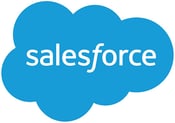How Much Does HubSpot Cost?

UPDATED April 8, 2024: HubSpot introduced significant changes to its subscription pricing, effective March 5, 2024, transitioning to a seat-based pricing model across all its subscription tiers. We have incorporated these changes in this article.
Choosing the right software for your business can feel overwhelming, right? You're not the only one feeling this way. You may have heard about HubSpot, but you might be wondering about how much HubSpot costs.
HubSpot has a lot to offer, so figuring out the cost can be confusing. In this article, we'll look closely at each subscription option and explain the benefits they offer, making those prices much clearer.
Whether you need marketing, sales, customer service solutions, or special deals for nonprofits or startups, HubSpot has a variety of options. And yes, there are even free options!
Let's get started!
Table of Contents
Who Is HubSpot Best For?
If you're a small or medium-sized business looking to streamline your marketing, sales, and customer service processes, then HubSpot could be the perfect fit for you. But that's not all.
Startups aiming to establish strong customer relationships from day one will find value in HubSpot's comprehensive toolset. With a suite of features for managing email promotions to web analytics, HubSpot's offerings can provide an advantage for those launching their venture.
Larger corporations with more complex needs aren't left out either. The Enterprise plans offer advanced features such as predictive lead scoring and goal-based nurturing, which are essential when dealing with larger audiences.
Nonprofits also have a place at the table here. With special pricing options available through their nonprofit program, organizations can leverage this powerful platform while keeping costs down.
- SMBs: Simplify multi-channel marketing efforts with an integrated approach on one platform.
- Startups: Get off the ground quickly by managing multiple facets of your new venture using easy-to-use automation tools within HubSpot.
- Larger Corporations: Advanced AI-driven insights help tailor interactions according to user behavior patterns, leading to higher conversions and improved ROI over time.
- NPOs: Affordable rates enable even nonprofits access to top-tier digital management solutions enabling them greater reach and impact within their communities.
Why Choose HubSpot?
You might be wondering why you should go for HubSpot. Let's put it this way: choosing a digital marketing platform is like picking the right pair of running shoes. You need something that fits perfectly and boosts your performance.
Here are some of the benefits of using HubSpot:
| Ease of Use | Whether you're a tech expert or not, HubSpot ensures that navigating through their software is incredibly user-friendly and seamless. |
| In-Depth Analytics | Have you ever tried fishing blindfolded? That's what it's like to run a business without proper data analysis. But with HubSpot's detailed reports, you'll never miss out on any crucial insights again. |
| Marketing and Sales Alignment | Just like a well-coordinated team in a childhood game, sales and marketing work together seamlessly with HubSpot, achieving maximum results through perfect alignment. |
Now that we've covered the benefits, let's talk about the cost.
Latest Changes to HubSpot Pricing
On March 5, 2024, HubSpot rolled out a seats-based pricing model to all Hubs and subscription tiers. With this change, they removed seat minimums for Sales Hub and Service Hub and introduced the Core Seat and View-Only Seat.
Core Seats provide users with full editing privileges and access to HubSpot's advanced AI features, while View-Only Seats offer unrestricted, complimentary access for users who only need to view data and reports without editing capabilities.
This change shows that HubSpot is committed to aligning its pricing with the changing needs of its customers. It allows users to easily adjust their subscriptions as their business expands, and pay for only what they need.
HubSpot Marketing Hub Pricing

| Starter | Price: $20/month/seat Includes 1,000 marketing contacts Key Features: This marketing hub tier offers basic yet powerful tools like email marketing, ad management, lead analytics dashboard, and basic reporting tools, making it ideal for small businesses or those just starting with digital marketing. |
| Professional | Price: $890/month Includes 2,000 marketing contacts and 3 core seats Additional seats start at $50/month Also requires a one-time $3,000 Professional Onboarding fee Key Features: A step up, this level includes advanced features like marketing automation, SEO tools, social media tools, video hosting & management, and much more. It's designed for businesses ready to take their marketing efforts to a more sophisticated level. |
| Enterprise |
Price: $3,600/month |
HubSpot Sales Hub Pricing

| Starter | Price: $20/month/seat Key Features: Ideal for small sales teams, this tier includes essential tools like email tracking & notifications, calling, and meeting scheduling to enhance sales efficiency. |
| Professional | Price: $100/month/seat Also requires a one-time $1,500 Professional Onboarding fee Key Features: Geared towards more established sales teams, this level offers sales automation, predictive lead scoring, custom reporting, and more to streamline sales processes and improve outcomes. |
| Enterprise |
Price: $150/month/seat |
HubSpot Service Hub Pricing

| Starter |
Price: $20/month/seat Key Features: This tier is perfect for small service teams, offering basic yet effective tools like ticketing, live chat, and team email to manage customer interactions efficiently. |
| Professional |
Price: $100/month/seat Key Features: Aimed at more developed service teams, it includes customer feedback tools, a knowledge base, automation & routing, and more to enhance customer service delivery. |
| Enterprise |
Price: $130/month/seat Key Features: Tailored for extensive customer service departments, this level offers custom reporting, playbooks, user roles, and more for a sophisticated customer service experience. |
HubSpot Operations Hub Pricing

| Starter |
Price: $20/month/seat Key Features: This tier is perfect for small service teams, offering email reply tracking, data sync, default field mappings, historical sync and email health reporting. |
| Professional |
Price: $800/month Key Features: It includes AI-powered data formatting recommendations, programmable automation, bulk duplicate management and scheduled workflow triggers. |
| Enterprise |
Price: $2,000/month Key Features: This operations hub level offers advanced data calculations, advanced permissions, standard sandbox account, custom objects and |
Content Hub Pricing (Formerly known as CMS Hub)
![]()
| Starter |
Price: $20/month/seat |
| Professional |
Price: $500/month Key Features: Offering more advanced features like dynamic content, AI translation, A/B testing, memberships, advanced analytics, and custom reporting, this level is suited for businesses with more complex content management needs. |
| Enterprise |
Price: $1,500/month Key Features: The Enterprise tier is designed for large-scale content management, with features like serverless functions, membership management, and adaptive testing. |
HubSpot for Nonprofits
HubSpot recognizes the unique needs of the nonprofit sector and offers a 40% discount on Professional and Enterprise levels for qualifying organizations. This discount extends to all add-ons, making HubSpot an affordable and powerful tool for nonprofits looking to enhance their outreach and operational efficiency.
Learn More About HubSpot for Nonprofits
HubSpot for Startups
Understanding the challenges faced by startups, HubSpot provides significant discounts of up to 75% off in the first year for startups associated with its approved partners. This program is designed to support new businesses in scaling their operations effectively.
HubSpot's Free Plan
HubSpot offers a free plan that includes basic tools for CRM, marketing, sales, and customer service. This plan is a great starting point for small businesses or those beginning their journey with inbound marketing.
Find out about HubSpot's Free Tools
Additional HubSpot Cost Factors
Add-ons
HubSpot offers a range of add-ons for enhanced functionality, catering to specific business needs.
Integrations
With over 1,000 third-party integrations, HubSpot enhances its capabilities, ensuring seamless data management and operational efficiency.
Onboarding and Training
HubSpot provides comprehensive onboarding and training options for new Professional and Enterprise customers, ensuring a smooth transition and effective use of the platform.
Assessing HubSpot's Value
When considering its wide array of features, integration capabilities, and scalability, HubSpot presents significant value for businesses looking to centralize their marketing, sales, and service tools.
With HubSpot, businesses can streamline their operations and create a cohesive and efficient system that aligns their sales and marketing efforts. The ease of use of the software ensures that even non-tech experts can navigate through it seamlessly, saving time and resources. Additionally, HubSpot's in-depth analytics provide valuable insights that allow businesses to make data-driven decisions and optimize their strategies.
Exploring HubSpot Alternatives
When considering CRM and marketing automation platforms, it's important to explore all options to find the one that best fits your business needs. While HubSpot is a popular choice, there are other platforms like Salesforce, Marketo, and Zoho that offer unique features and benefits. Let's delve into more detail about each of these alternatives.
Salesforce
 Salesforce is a highly customizable CRM platform known for its scalability and extensive suite of applications. It's particularly well-suited for larger businesses or those with complex sales processes.
Salesforce is a highly customizable CRM platform known for its scalability and extensive suite of applications. It's particularly well-suited for larger businesses or those with complex sales processes.
Key Features: Salesforce offers a comprehensive set of tools for sales management, customer service, marketing automation, and business analytics. Its robust AppExchange ecosystem allows for extensive customization and integration.
Benefits: The platform excels in providing detailed customer insights, advanced reporting, and analytics capabilities. Salesforce's flexibility in customization allows businesses to tailor the platform to their specific processes and needs.
Considerations: Salesforce can be more complex to set up and may require dedicated resources for customization and maintenance. It's often more suited for larger organizations or those with specific CRM needs that require deep customization.
Marketo
 Marketo, now part of Adobe, is a leading marketing automation platform known for its robust capabilities in email marketing, lead management, and campaign analytics.
Marketo, now part of Adobe, is a leading marketing automation platform known for its robust capabilities in email marketing, lead management, and campaign analytics.
Key Features: Marketo shines in areas like email marketing, lead nurturing, and revenue attribution. It offers a comprehensive set of tools for B2B marketing automation, including lead scoring, CRM integration, and detailed analytics.
Benefits: The platform is highly regarded for its ability to automate and streamline complex marketing processes, making it a favorite among B2B marketers. Marketo's analytics tools help in measuring and optimizing the ROI of marketing campaigns.
Considerations: Marketo is often seen as best suited for medium to large businesses due to its extensive features and pricing structure. It may require a learning curve for new users and a dedicated team to manage and optimize its capabilities.
Zoho
 Zoho CRM is a versatile CRM solution that caters well to small and medium-sized businesses, offering a good balance of features and affordability.
Zoho CRM is a versatile CRM solution that caters well to small and medium-sized businesses, offering a good balance of features and affordability.
Key Features: Zoho CRM includes sales automation, marketing automation, customer support tools, and a customizable database. It also offers a range of integrations with other Zoho products and third-party applications.
Benefits: Zoho is known for its user-friendly interface and affordability, making it a great option for smaller businesses or those just starting with CRM. It offers a good range of features for sales tracking, customer management, and marketing automation.
Considerations: While Zoho is more accessible for smaller businesses, it may lack some of the advanced features and integrations offered by larger platforms like Salesforce and Marketo.
Making the Right Choice
Each of these platforms offers unique strengths and may be more suitable for different types of businesses. When choosing a CRM or marketing automation platform, consider factors like the size of your business, your specific needs in sales and marketing, the level of customization required, and your budget.
Contact us for expert guidance and support to ensure you make the best choice for your business's unique needs.
Related Resources
For further insights and detailed comparisons, visit HubSpot's pricing pages and resource center